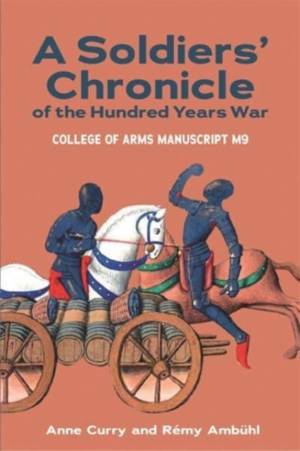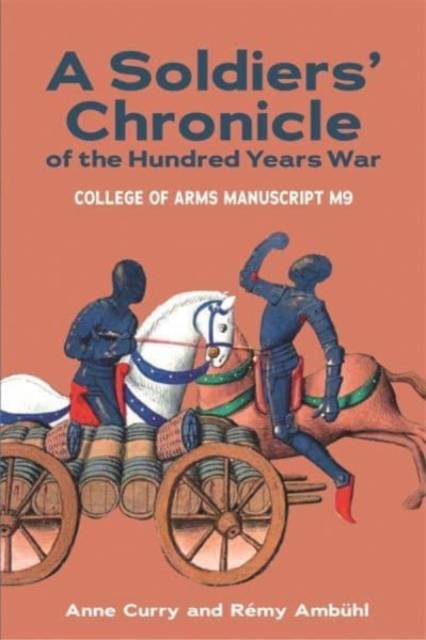
Bedankt voor het vertrouwen het afgelopen jaar! Om jou te bedanken bieden we GRATIS verzending (in België) aan op alles gedurende de hele maand januari.
- Afhalen na 1 uur in een winkel met voorraad
- In januari gratis thuislevering in België
- Ruim aanbod met 7 miljoen producten
Bedankt voor het vertrouwen het afgelopen jaar! Om jou te bedanken bieden we GRATIS verzending (in België) aan op alles gedurende de hele maand januari.
- Afhalen na 1 uur in een winkel met voorraad
- In januari gratis thuislevering in België
- Ruim aanbod met 7 miljoen producten
Zoeken
A Soldiers' Chronicle of the Hundred Years War
College of Arms Manuscript M 9
Anne Curry, Rémy Ambühl
Hardcover | Engels
€ 257,95
+ 515 punten
Omschrijving
This previously unpublished chronicle from the mid-fifteenth century covers the English wars in France from 1415 to 1429. It is highly unusual in that it was written by two soldiers, Peter Basset and Christopher Hanson. William Worcester, secretary to the English commander Sir John Fastolf, also had a hand in it, and it was specifically written for Sir John. The content is unusual, as it includes many lists of individuals serving in the war, and records their presence at battles, naming more than 700 in all. Over half these individuals are French or Scottish, so it would seem that the authors had a particularly detailed knowledge of French military participation. The narrative is important for the English campaigns in Maine in the 1420s in which Fastolf was heavily involved and which otherwise receive little attention in chronicles written on either side of the Channel. The progress of the war is well mapped, with 137 place names mentioned.
The chronicle is indirectly a source for Shakespeare, who used Edward Hall's chronicle when writing his history plays; Hall in turn used this work as a source for his book. Another point of interest is that the chronicle is by a scribe who can be identified, and proves to be the only known fifteenth-century account of the war written in England in French, which adds an important linguistic dimension to its study.
The chronicle is indirectly a source for Shakespeare, who used Edward Hall's chronicle when writing his history plays; Hall in turn used this work as a source for his book. Another point of interest is that the chronicle is by a scribe who can be identified, and proves to be the only known fifteenth-century account of the war written in England in French, which adds an important linguistic dimension to its study.
Specificaties
Betrokkenen
- Auteur(s):
- Uitgeverij:
Inhoud
- Aantal bladzijden:
- 480
- Taal:
- Engels
Eigenschappen
- Productcode (EAN):
- 9781843846192
- Verschijningsdatum:
- 4/01/2022
- Uitvoering:
- Hardcover
- Formaat:
- Genaaid
- Afmetingen:
- 156 mm x 234 mm
- Gewicht:
- 839 g

Alleen bij Standaard Boekhandel
+ 515 punten op je klantenkaart van Standaard Boekhandel
Beoordelingen
We publiceren alleen reviews die voldoen aan de voorwaarden voor reviews. Bekijk onze voorwaarden voor reviews.









